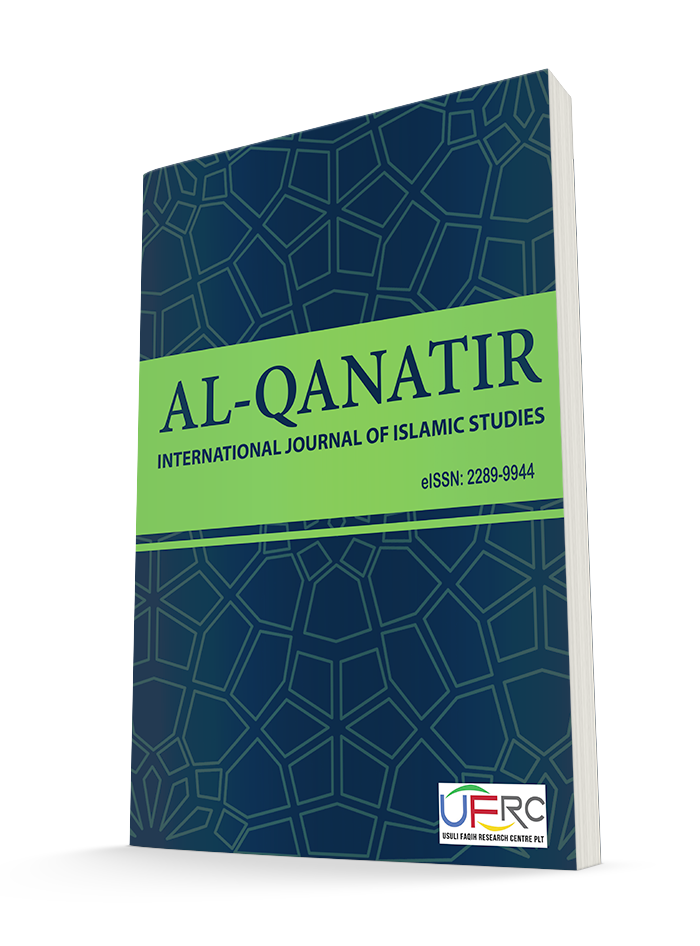Article

THE ARBITRATOR AND HIS ROLE DURING THE ARBITRATION OF FAMILY CONFLICTS IN THE ABSENCE OF THE SHARIA JUDICIARY
المُحَكَّم ودوره في التحكيم عند غياب القضاء الشرعي في الخصومات الأسرية
Al-Qanatir: International Journal of Islamic Studies vol. 4 no. 1 (Page 38-48)View in JFatwa
Muhammad Said al-Mujahid (Author)
Abstract
The purpose of this research is to explain the legitimacy of the arbitrator in the absence of a Sharia Law Judiciary in Christian countries, or in states where Muslims are considered the minority, or where they are the majority but the governing laws are not derived from Islam. Therefore this topic will answer the following questions; (a) Is it compulsory to implement sharia rulings as regards to the current family conflicts in the absence of sharia law judiciary?, (b) what is the legitimacy of arbitration ? (c), the qualities of the arbitrator? This topic relied on the inductive analysis of the jurists’ opinions on this case study. This survey has yielded results and amongst the most important is that; it’s obligatory for Muslims to implement the Islamic ruling in conflicts even in the absence of sharia judiciary, and that arbitration is permissible even in the presence of a sharia law judiciary and compulsory in its absence, and as for the arbitrator, he must fulfil characteristics of a judge as they are known to the Fiqh jurists.
Keywords: Arbitrator, arbitration, Sharia judge, Sharia law rulings.
يهدف البحث إلى بيان شرعية التحكيم في ظل غياب القضاء الشرعي لدى الأمم الكافرة، أو التي يعتبر فيها المسلمون أقليةً، أوهم الأكثرية ولكنّ القانون الذي يحتكمون إليه غيُر مستَمدٍّ من الإسلام، فجاءت هذه الدراسةُ للإجابة على الأسئلة الآتية: هل يجب تطبيقُ الأحكام الشرعية في الخصومات الواقعةِ في الأسرة المسلمة إن لم يوجد قضاءٌ شرعي، وما مشروعية التحكيم، وما صفات المحكَّم؟ ولقد اعتمدت الدراسةُ على المنهج الاستقرائي التحليلي لأقوال الفقهاء في المسألة، ولقد توصلتِ الدراسةُ إلى نتائجَ، لعل من أهمها: أن الواجب على المسلمين تطبيقُ الشريعة فيما يَعرِض لهم من خصوماتٍ وإنْ فُقِد القضاءُ الشرعي، وأنّ التحكيم جائزٌ عند وجود القضاء الشرعي، وواجبٌ عند فقده، وأمَّا المحكَّم فلا بد من أن تتوفر فيه صفاتُ القاضي المعروفة عند الفقهاء.
الكلمات المفتاحية: المحكَّم، التحكيم، القاضي الشرعي، الأحكام الشرعية.
References
Abu Yacla. 2000. Al-Ahkam Al-Sultaniyyah. Beirut: Dar al-Kutub al-cIlmiyyah.
Al-Bukhariyy. 1422H. Sahih al-Bukhariyy. N.p: Dar Tawqu al-Najah.
Al-Juwayniyy. 1401H. Ghiyath al-Umam Fi al-Tiyathi al-Zulam. Riyadh: Maktab Imam al-Haramayn.
Ibn cAbidin. 1992. Radd al-Muhtar cAla Durr al-Mukhtar. Beirut: Dar al-Fikr.
Ibnu Abi Shaybah. 1409H. Al-Musannaf Fi al-Ahadiith Wa al-Athar. Riyadh: Maktab al-Rushd.
Ibn al-cArabiyy. 2003. Ahkam al-Qur’an. Beirut: Dar al-Kutub Al-cIlmiyyah.
Ibn Al-Mundhir. 2004. Al-Ijmac. N.p: Dar al-Muslim Li al-Nashr.
Ibnu Qudamah al-Maqdisyy. 1968. Al-Mughniyy. Cairo: Maktabat al-Qahirah.
Al-Marghinaniyy. N.d. Al-Hidayah Fi Sharh Bidayat al-Mubtadi. Beirut: Dar Ihya’ al-Turath al- cArabiyy.
Al-Mawardiyy. N.d. Al-Ahkam al-Sultaniyyah. Cairo: Dar al-Hadith.
Mohammed Alkda Urban. 2001. The Jurisprudence Of The Muslim Family In The Diaspora, The Netherlands Model. Beirut: Dar Scientific Books.
Muhannad Fouad Astete. 2006. Judicial Organization Of Muslim Minorities Faculty Of Islamic Studies. University of Jordan,
Muslim. N.d. Sahih Muslim. Beirut: Dar al-Ihya’ al-Turath al-cArabiyy.
Al-Nasa’iyy. 1986. Al-Sunan Al-Sughra. Halab: Maktab al-Matbucat al-Islamiyah.
Salem bin Abdul Ghani Rafii. 2002. The Provisions Of The Personal Status Of Muslims In The West, Germany Model. 1st Ed. Beirut: Dar Ibn Haraz.
URL
Back View in JFatwa

